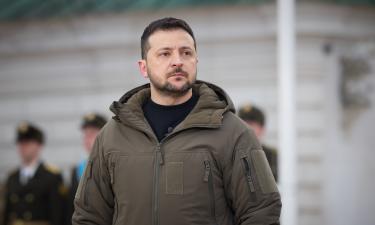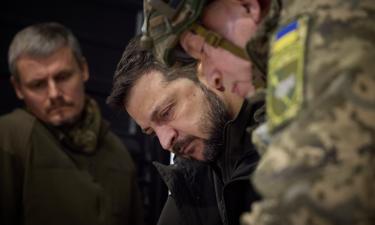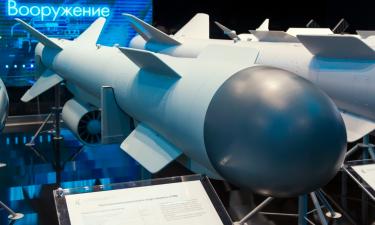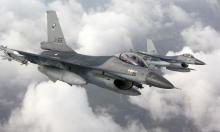Russia strongly determined to stand up against NATO to survive
It seems that Western political elites are living a wonderful life in their own parallel universe that has little in common with reality. They do not listen to reasonable arguments of their opponents as they are guided by the only one passion – to contain Russia at all costs. In turn, Russian diplomats have to switch to methods of shock therapy.
NATO's unceremonious saber-rattling near the Russian borders, which threatens to escalate into a real war, prompted President Vladimir Putin to ask for legitimate guarantees of no aggression from the West. Russia wants to develop certain agreements with the United States and its allies to stop NATO from expanding to the east.
Speaking at a ministerial OSCE meeting in Stockholm, Russian Foreign Minister Sergei Lavrov called the decision of the 2008 NATO Bucharest summit to give a green light to Ukraine's and Georgia's incorporation into the alliance a mine that had been placed at the very foundation of European security. The political commitments of OSCE members to ensure equal and indivisible security for all are enshrined in such fundamental documents as the Helsinki Final Act and the Charter for European Security. However, NATO members have been strongly opposed to Russia's proposals to codify political declarations to make the principle of indivisibility of security legally binding.
They assume in the West that they will be able to avoid any threats to their security as long as they remain under NATO's protection. Hence the irrepressible desire to expand eastward while ignoring Russia's legitimate security interests. Contrary to all the verbal promises, NATO had had five expansion waves during the post-Soviet era. The alliance had thus gained 14 new members. The increasingly aggressive behavior of the military bloc along Russia's western borders makes the Russian side face the obvious:
NATO has gotten as close to Russia as possible.
Bellicose officials in Washington push Kiev to using military force to resolve the Donbas crisis. Russia will inevitably intervene should a large-scale conflict in the region spark. Needless to say that Russia will be portrayed as an aggressive enemy, and the machine of the Western propaganda will work the best it can for the purpose. The desire to protect the population of Donbas and coerce Ukraine to peace will be portrayed as an act of unprovoked aggression. Packages of sanctions will follow one after another. Today, however, Russia is living in a situation, when Western sanctions are the lesser of evils, since Russia's encirclement by NATO forces would carry much greater risks.
Not that long ago, US Republican Senator Roger Wicker pledged that the US would go to war against Russia on the side of Ukraine. Wicker even threatened Russia with a preemptive nuclear strike. One has to admit here that there are mentally unbalanced people in the ranks of Western politicians. It appears strange that such people are present in the Senate at all — it would be better to isolate them in appropriate medical institutions.
NATO does not take Moscow warnings seriously. Members of the bloc are still looking at Russia through the prism of the Cold War, which, as they believe, Russia had lost, and they will not bother to condescend to an equal relationship with the defeated.
Konstantin Blokhin, an expert at the Center for Security Studies of the Russian Academy of Sciences, believes that the West will continue its line of provocative actions as long as it sees Russia being reluctant about it. NATO will not change its behaviour until Russia takes action to put an end to it.
Washington psychologically perceives Moscow's diplomatic, rational approach to foreign relations as weakness. If Russia does not act tough with the West, the latter will develop confidence in its victory. There is no place for peace in such a scenario.
It was the Cuban missile crisis that gave rise to a full-fledged security dialogue between the USSR and the USA, but no one wants such a crisis to occur again today, Konstantin Blokhin believes. In all fairness, one shall admit that the language of Russian diplomacy in relation to Western "partners" has been getting increasingly harsh and strong lately.
"If NATO continues to move away from talking on this topic or on the topic of agreements, the idea of which came from Russian President Vladimir Putin, we will take measures so that our security, our sovereignty and territorial integrity does not depend on anyone else," Russian Foreign Minister Lavrov said.
According to Russia's Deputy Foreign Minister Sergei Ryabkov, USA's foreign policy with regard to Russia has been reduced to blackmail, threats and sanctions. Moscow's prime goal is to move the threat as far from its borders as possible. Russia does not need any promises from NATO — it needs written legal guarantees.
Following the recent online meeting between US and Russian presidents, the parties have agreed to set up a body hat would formulate the proposals related to security guarantees for Russia. Russia will prepare its own version of the document that will formulate the concept of indivisible security and its legal guarantees. The document will be submitted to the United States until the end of the week. However, one does not have to hope for the best, given the good old habit of the "deep state" to nullify any sensible initiatives.
In a recent interview with The Wall Street Journal, US Secretary of State Anthony Blinken stated that the incorporation of Russia's neighbouring states into the military alliance was one of the fundamental principles of the international system. As for foreign policy, Blinken said, the United States will not give up its leadership, as this place will be taken by someone else otherwise.
Politicians in the West deliberately reduce the topic of tensions with Russia to the crisis in Ukraine. However, it will be possible to resolve the conflict in Ukraine only if one addresses other questions too. First and foremost, one needs to with Ukraine, artificially driving it into a dead end. The Ukrainian conflict will be resolved only in conjunction with many other issues, and above all — with Russia's finding a worthy place in the European security system. The West must understand and accept that NATO cannot infinitely expand to the detriment of the interests of other countries: it is necessary to revise the entire system of relations in the field of European security that has developed after the Cold War.
Subscribe to Pravda.Ru Telegram channel, Facebook, RSS!





